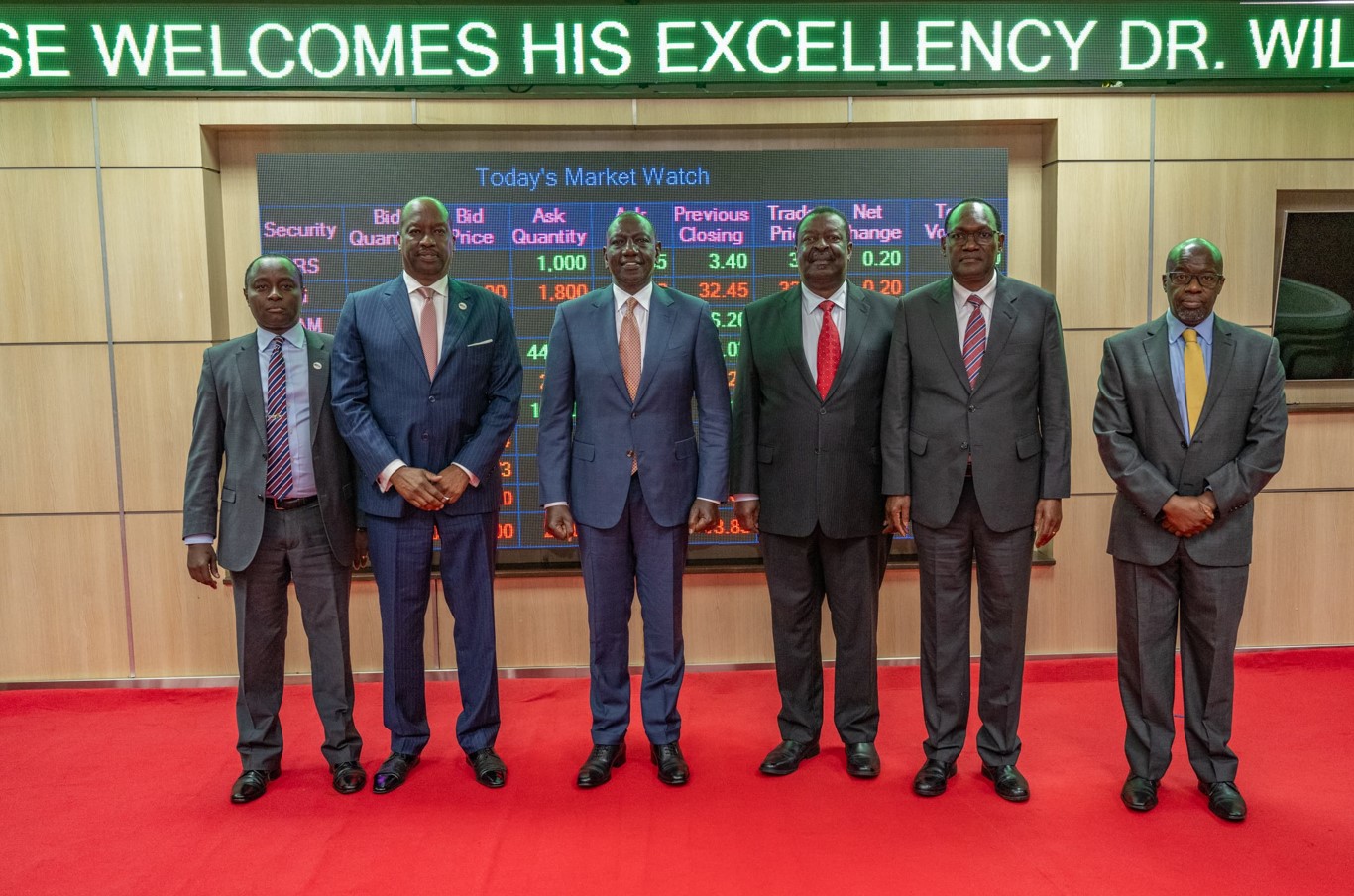Financial inclusion: Ruto praises Islamic Banking's role in Kenyan economy

The President expressed satisfaction that the proceeds from the Linzi Sukuk issuance will be used for financing, designing, constructing, and commissioning 3,069 institutional houses.
President William Ruto highlighted the increasing demand for Islamic banking, both in Kenya and globally, during the Linzi Sukuk Bell-ringing ceremony at the Nairobi Securities Exchange (NSE) on Wednesday.
The ceremony marked the listing of Linzi Sukuk, a Shariah-compliant financial product, on the NSE's Unquoted Securities Platform (USP).
More To Read
- NSE enforces strict shareholding regulations as Kenya’s capital markets soar 15 per cent
- Kenya’s stock market reaches major milestone with single-share trading
- Absa’s La Riba at 20: How Islamic Banking reshaped Kenya’s financial landscape
- Explainer: NSE scraps minimum 100 shares trading rule- what this means for Kenyans
- President Ruto responds to Maraga over ‘failed state’ remarks, defends government record
- President William Ruto unveils Sh44 billion Linzi listing, eyes IPOs for State firms
Ruto emphasised the importance of Islamic finance in promoting financial inclusion and expanding market access. He pointed to successful sovereign Sukuk issuances in Nigeria, Algeria, Egypt, and Malaysia as examples of the high demand for Islamic financial products.
Sukuk, unlike traditional bonds, involve a direct asset ownership interest, making them compliant with Islamic law which prohibits interest-bearing debt obligations.
"As a financial instrument compliant with Islamic law, the Sukuk highlights the importance of Islamic finance in promoting financial inclusion and broadening market access," said the President.
He added that the success of sovereign Sukuks in various countries shows the potential for diversifying financing sources beyond traditional bonds and loans, which can help enhance financial resilience against interest rate volatility.
Affordable housing
The President expressed satisfaction that the proceeds from the Linzi Sukuk issuance will be used for financing, designing, constructing, and commissioning 3,069 institutional houses.
 Chairperson, Board of Directors of the Nairobi Securities Exchange Kiprono Kittony, President William Ruto and Prime Cabinet Secretary Musalia Mudavadi during the Linzi Sukuk Bell-Ringing Ceremony, Nairobi Securities Exchange on July 31, 2024. (Photo: PCS)
Chairperson, Board of Directors of the Nairobi Securities Exchange Kiprono Kittony, President William Ruto and Prime Cabinet Secretary Musalia Mudavadi during the Linzi Sukuk Bell-Ringing Ceremony, Nairobi Securities Exchange on July 31, 2024. (Photo: PCS)
"I am also encouraged that the funds raised from this bond will facilitate the construction of 3,069 affordable housing units, thereby generating thousands of new jobs across the country," Ruto stated.
The structure of the Linzi Sukuk aims to provide housing at an average cost of Sh1.4 million, significantly lower than the current market average. This initiative will enable Kenyans to own homes by paying as little as Sh7,700 monthly over 15 years.
However, Ruto acknowledged a significant barrier to the broader adoption of Islamic finance in Kenya was the absence of a centralised Shariah Governance Board. He noted that this challenge must be addressed to fully realise the potential of Islamic finance in the country.
The President directed financial regulators in Kenya to collaborate with the National Treasury and Islamic finance stakeholders to develop a robust regulatory framework.
He emphasised that such a framework is essential to support the growth of Islamic finance in Kenya, which he believes has tremendous potential to unlock investment resources and boost economic growth.
The listing of Linzi Sukuk on the NSE's USP is a significant milestone for Islamic finance in Kenya.
It marks the first Shariah-compliant product to be admitted on the platform, signalling a growing interest in and acceptance of Islamic financial instruments in the country.
This development also aligns with broader efforts to diversify Kenya's financial markets and enhance access to capital for various sectors.
Top Stories Today












































